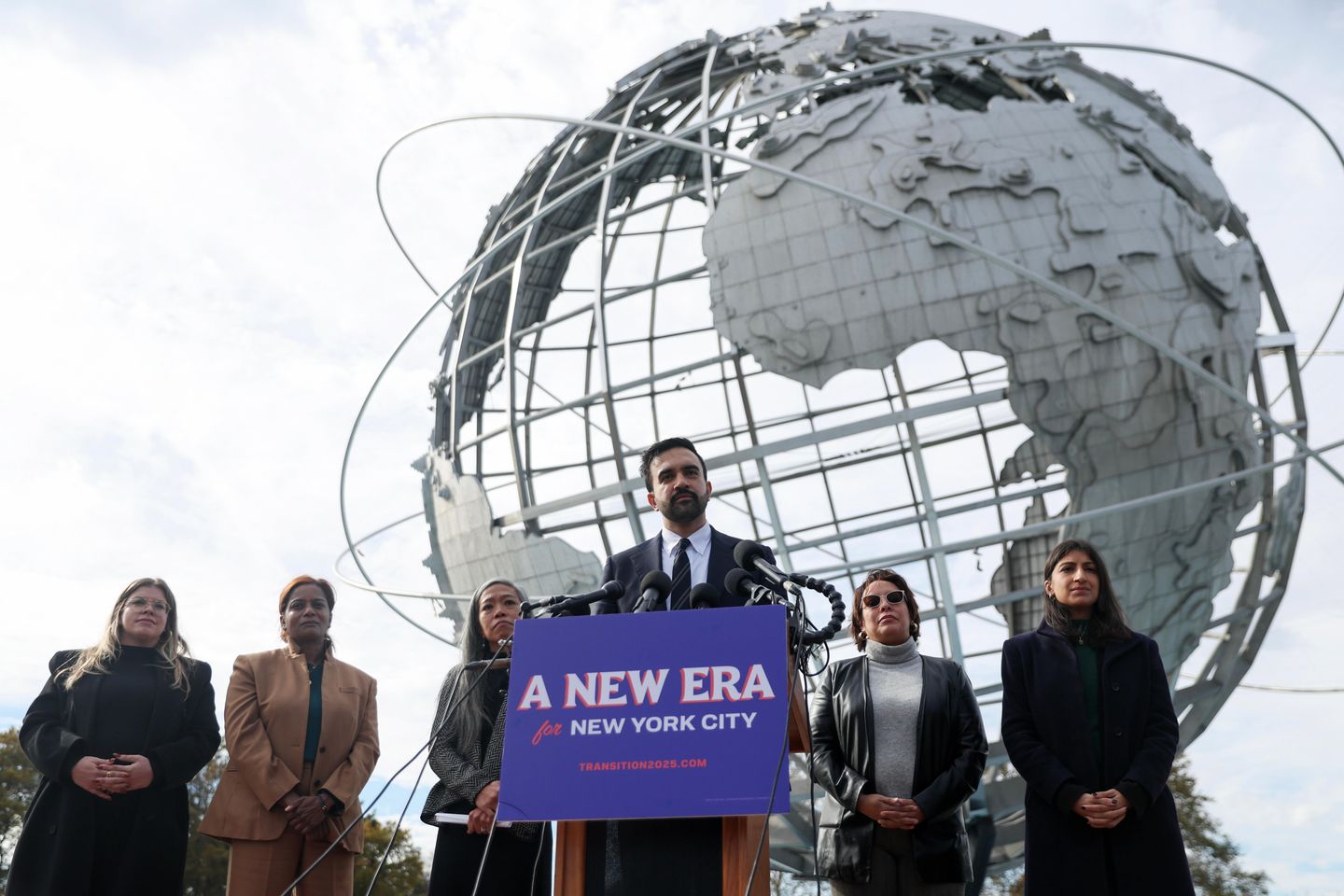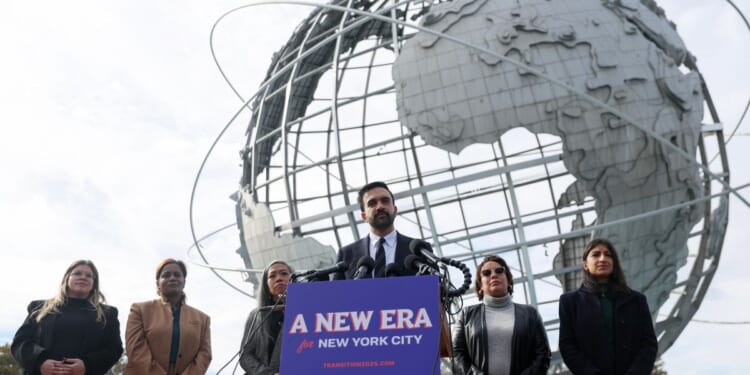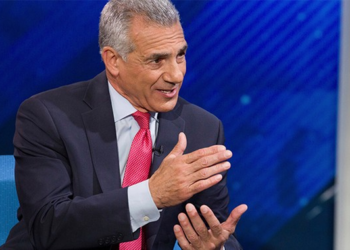
Democrats’ sweep of the off-year elections this week gave the party renewed vigor for battling President Trump and confidence that the victories will serve as a springboard for the 2026 midterm races.
The results, Democrats said, reflect mounting voter anger with Mr. Trump and his agenda and validate their focus on economic issues, particularly rising costs, as a blueprint for the midterms.
“This was complete dominance by the Democrats throughout the country,” Ken Martin, chair of the Democratic National Committee, told reporters Wednesday on a conference call. “The reality is this was a huge rejection of the Trump extremism and an embrace of the hopeful, positive message that Democrats are offering up to the American people — one that’s focused on their concerns, focused on an economic agenda that gives them a sense that their lives are going to be better with Democrats in control.”
At the same time, Zohran Mamdani’s historic New York mayoral win as a socialist Democrat puts a spotlight on the tension within the party over how far left it will move.
Republicans combed through the results in search of what had gone wrong while downplaying the outcomes as predictable wins in Democratic-friendly states.
Mr. Trump said the results were horrible for the entire nation.
“I don’t think it was good for Republicans,” Mr. Trump said at a breakfast with Republican senators at the White House. “I’m not sure it was good for anybody, but we had an interesting evening and we learned a lot.”
He marked the first anniversary of his own election victory, saying the “economy is booming and costs are coming way down.”
House Minority Leader Hakeem Jeffries, New York Democrat, said the president was “trying to distance himself” from the electoral beating.
He said Republicans paid a price at the polls for lying about making life more affordable.
“They haven’t. It is more expensive,” Mr. Jeffries said on a podcast with Don Lemon.
The Democratic wins included gubernatorial races in Virginia and New Jersey and a pivotal redistricting ballot measure in California. Democrats also won in the Pennsylvania state Supreme Court retention races.
In some respects, gubernatorial wins by Abigail Spanberger in Virginia and Mikie Sherrill in New Jersey reflected the pattern of previous off-year elections, when voters mobilized against the party of the sitting president.
Yet the scale of their wins — 15 percentage points for Ms. Spanberger and 13 points for Ms. Sherrill — and the significant gains in downballot legislative races sent a clear warning to Mr. Trump and the Republican Party as they prepare for a challenging midterm cycle amid sagging approval ratings.
Ms. Spanberger and Ms. Sherrill dominated among voters of color, college graduates, young voters and women, including 80% of women ages 18 to 29.
The two Democrats posted overwhelming margins in urban centers and, more critically, secured decisive wins in suburban districts, leaving their Republican rivals unable to close the gap in sparsely populated rural areas and helping pave the way for downballot victories.
A similar coalition propelled Mr. Mamdani to a commanding win in New York’s mayoral race. It helped drive the passage of California’s Prop 50, a direct rebuke of Republican-led redistricting efforts in other states.
Democrats are heading in a similar direction with redistricting in Virginia, where they also won races for attorney general and lieutenant governor and captured their largest House of Delegates majority in 40 years. That sets the stage for them to ask voters whether they want more Democratic-friendly maps.
Still, questions remain over whether newly elected Democratic Attorney General Jay Jones’ texting scandal will make it impossible for him to do his job. In New York, it remains to be seen whether Mr. Mamdani, the city’s first Muslim mayor, will get the support of the New York City Council and the governor for his socialist-style agenda, which includes free child care, free buses, rent freezes, government-run grocery stores and tax increases on the wealthy to pay for it all.
Republicans have been quick to cast Mr. Mamdani as the new face of the Democratic Party. They are betting that his “radical” platform will alienate moderate and swing voters ahead of the midterms.
The wins in New York, New Jersey and Virginia underscored how Democrats’ emphasis on affordability resonated with voters amid growing economic anxiety and uncertainty about the nation’s direction.
The government shutdown added to the worries, particularly in Virginia, home to more than 140,000 government employees.
An Associated Press survey of more than 17,000 voters across New Jersey, Virginia, California and New York City found widespread concerns about jobs and the cost of living. Voters said they felt financially stuck.
In Virginia and New Jersey, roughly 60% of voters said they were “angry” or “dissatisfied” with the direction of the country.
The economy (49%) and health care (21%) topped voter concerns in Virginia, far ahead of immigration (11%), education (10%) and crime (5%).
New Jersey voters cited taxes (35%), the economy (32%) and health care (16%) as their leading issues.
In New York City, 55% of voters identified the cost of living as their top concern.
The results in Virginia and New Jersey echoed a familiar pattern: The newly elected sitting president’s party often struggles in its first off-year elections.
In 2021, Republicans swept the statewide races in Virginia and nearly unseated New Jersey Gov. Patrick Murphy.
Four years earlier, Democrats Ralph Northam and Mr. Murphy scored significant wins in both states, seen as a rebuke of Mr. Trump.
In 2009, Republicans Bob McDonnell and Chris Christie rode anti-Obama sentiment into their respective state governor’s mansions.
In each case, off-year momentum carried into the midterms, a trend Democrats hope to replicate in 2026.

















